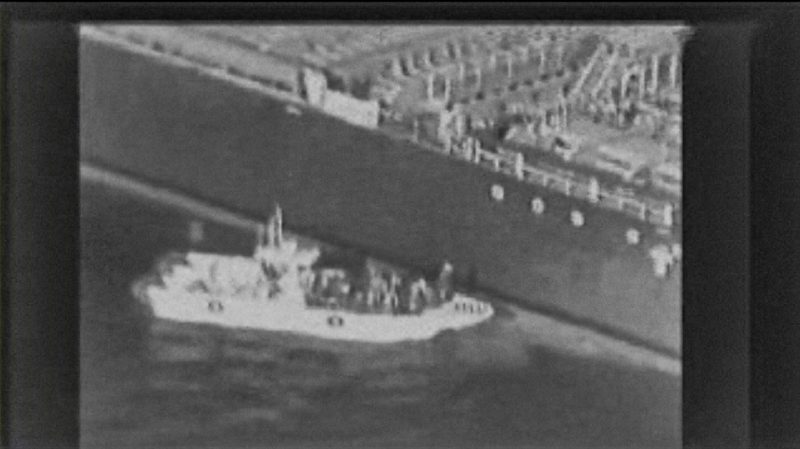Tanker hit in Gulf attacks heads to port
The US military on Thursday released grainy footage it said showed an Iranian patrol boat removing a limpet mine from the Kokuka Courageous (-)
Dubai (AFP) – A Japanese tanker, one of two vessels attacked in sensitive Gulf waters this week, was heading to port on Saturday, its owners said.
The Kokuka Courageous was rocked by explosions as it passed through the Gulf of Oman on Thursday, threatening its highly flammable cargo of methanol.
The resulting blaze was quickly extinguished, although one crew member suffered minor injuries.
US President Donald Trump said the twin attack, which also targeted a tanker owned by Oslo-listed company Frontline, had Iran “written all over it”.
The Japanese tanker’s Tokyo-based operator Kokuka confirmed the vessel was heading to port in the United Arab Emirates.
“We still don’t know if the tanker goes to Khor Fakkan or Fujairah as they are very close,” said a spokesman, referring to two Emirati ports on the Gulf of Oman.
As US-Iranian tensions soared, Trump dismissed Tehran’s repeated threats that in case of conflict it could block the Hormuz Strait — a narrow seaway vital to the world’s oil supplies.
Speaking hours after the US military released grainy footage it said showed an Iranian patrol boat removing an “unexploded limpet mine” from one of the tankers, Trump was emphatic.
“Iran did do it,” Trump told Fox News. “You know they did it because you saw the boat. I guess one of the mines didn’t explode and it’s probably got essentially Iran written all over it.”
– ‘Allegations against Iran’ –
Iranian Foreign Minister Mohammad Javad Zarif tweeted that the US had “immediately jumped to make allegations against Iran without a shred of factual or circumstantial evidence.”
The United States has also accused Iran over May 12 attacks on four tankers anchored in the Gulf of Oman off Fujairah.
UN Secretary-General Antonio Guterres called for an independent investigation.
“It’s very important to know the truth (and) that responsibilities are clarified,” he told reporters at UN headquarters in New York.
“Obviously that can only be done if there is an independent entity that verifies those facts.”
The oil tankers were 10 nautical miles apart and headed to Asia when they were struck by explosions early Thursday after passing through the Strait of Hormuz, some 25 nautical miles off Iran’s southern coast.
The other vessel, the Front Altair, was carrying naphtha, a refined petroleum product.
It was hit by three explosions, according to Norwegian officials.
Iran has repeatedly warned that it could block the Hormuz Strait in a relatively low-tech, high-impact countermeasure to any attack by the United States.
Doing so would disrupt oil tankers travelling out of the Gulf region to the Indian Ocean and global export routes.
Trump played down the threat.
“It’s not going to be closed, it’s not going to be closed for long and they know it. They’ve been told in very strong terms,” Trump said.
Oil prices have surged following the attacks.
burs-gw/par
Disclaimer: Validity of the above story is for 7 Days from original date of publishing. Source: AFP.


